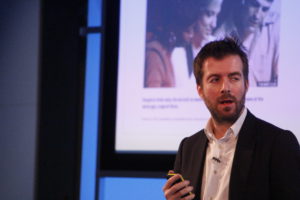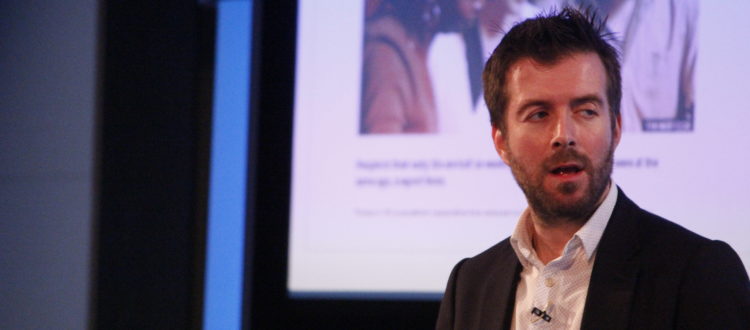6 ways BBC uses data to provide a better product
BBC makes use of Big Data to increase user engagement by creating great content and great products, James Holden, marketing and audiences director at BBC News Group, told the audience of 200+ news media executives at Big Data for Media Week conference in London on Thursday.
Holden detailed how BBC currently is using the approximately one billion online data points collected daily, providing insights into the future of creating personalised content through myBBC.
How is BBC using data now?
1. Reaching out to more audience segments. Traditionally, BBC was traditionally accessed by more men than women. The use of Big Data has allowed the company to identify this trend and subsequently launch initiatives to target more women.
2. Measuring how successful these initiatives are, including the effectiveness of the use of social platforms such as Facebook.
3. Increasing audiences’ loyalty, such as by analysing the different behaviours of users who access their sites directly, and through social platforms and linking stories that would retain users on the page.
4. Assisting the BBC marketing team, such as looking at how to best caption social media posts.
5. Providing real-time data to give journalists better understanding about the content they are produce. Apart from using off-the-shelf tools such as ChartBeat, staff also has developed solutions internally such as Telescope, which brings in data from different sources to journalists and shows how engagement changes throughout the day.
6. Producing content within the newsroom, such as explainer videos for younger audiences.
Despite the extensive use of data to increase engagement, Holden emphasised that as a public service, BBC is not audience-led, and data should not replace newsroom decision making.
The future of Big Data at BBC
Going forward, BBC’s main data focus is on developing myBBC, which allows users to personalise their BBC experiences. myBBC will benefit BBC and the users in three ways:
1. Improved quality of data granularity and timeliness.
2. Increased attribution of data to individuals.
3. Enable audiences to use data for better BBC experiences.
The main tangible change in the building of myBBC is to allow user’s login. This will allow BBC to obtain two main data inputs:
1. User behaviour (better understanding of audiences’ media behaviour across all platforms).
2. Content (better understanding and use of data about their programmes and content).
Audiences will benefit from myBBC by being able to create more personalised, relevant products and improved navigation across the different BBC platforms. Content will also be delivered to them at the right place and the right time. This enables them to build direct relationships with the BBC, thus increasing the value for money of the licence fees that they pay.
At the end of the day, BBC aims to create data-informed, cross-platform journalism and moves towards personalised, unique user experiences that inform, educate, and entertain.
Serla Rusli is a business and financial journalism MA student at City, University of London. She can be reached serla.rusli@gmail.com.


